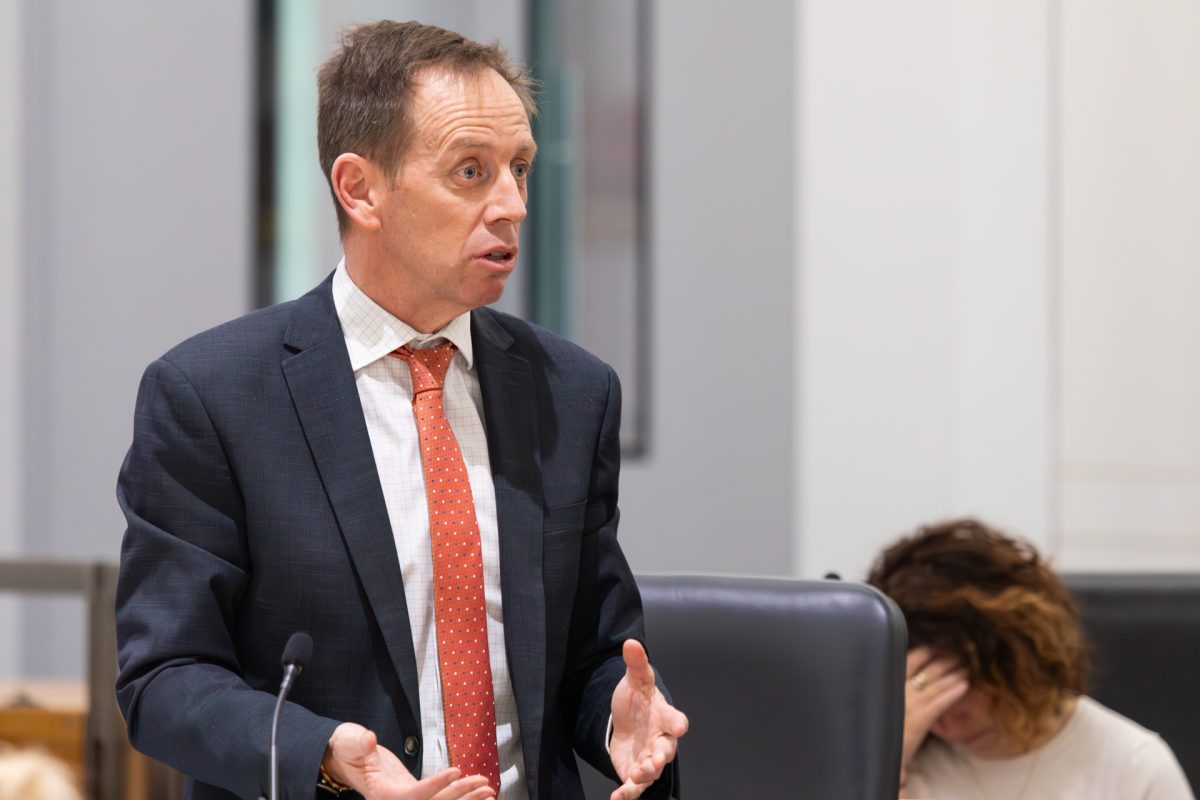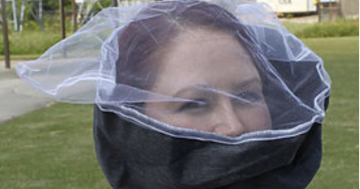
Attorney General Shane Rattenbury MLA says a new law preventing torture and ill-treatment in detention facilities will bring the ACT in line with United Nations standards. Photo: Michelle Kroll.
The ACT Government has passed a new law aimed at preventing torture and ill-treatment in detention facilities by giving regulators more power to conduct random inspections and obtain information.
The reform was welcomed by impacted oversight bodies, who nevertheless warned proper funding would be needed to ensure its effectiveness.
The new law follows regular nationwide media reports on the mistreatment of children in detention, including teens allegedly tear gassed in a Northern Territory facility and the compulsory isolation of children during COVID in Canberra’s Bimberi Youth Justice Centre, which was deemed “unnecessary”.
Attorney-General Shane Rattenbury said the Monitoring of Places of Detention Legislation Amendment Bill 2024 would ensure the Territory was in line with a United Nations treaty aimed at preventing torture and cruel, inhuman or degrading treatment or punishment.
“This legislation is a testament to our ongoing commitment to human rights and the dignity of all individuals,” he said.
The new law gives three ACT oversight bodies – the Office of the Inspector of Correctional Services, the Human Rights Commission and the ACT Ombudsman – the power to:
- Conduct independent visits and monitor all places of detention.
- Access information and conduct private interviews with detainees.
- Make reports and recommendations to relevant authorities with a view to strengthening human rights protections in places of detention.
“The additional power I have under the bill is the ability to go to places of detention anytime, I don’t need to have a review on foot,” ACT Inspector of Correctional Services (ICS) Rebecca Minty said. “It’s not just the power to go there, it’s also the power to request documents, speak to staff and detained people… you need that whole suite of powers, which is why this legislation is really good,” she said.

ACT Inspector of Correctional Services Rebecca Minty welcomed the reforms, but called for more funding. Photo: Liv Cameron.
“It’s an excellent development, it means the ACT is one of the leaders of what the treaty says we need to do… but it’s important to ensure all the oversight bodies are properly funded to do this work.”
Her office currently has three staff.
ACT Ombudsman Iain Anderson said the legislation was a positive move.
“The next step should be the provision of additional resources so the [oversight bodies] can perform its functions: sufficient funding is also a requirement of [the United Nations treaty],” he said.
Health Minister Rachel Stephen-Smith spoke in support of the new law in the Legislative Assembly.
“In other Australian jurisdictions, [we see] the nation’s status as a wealthy stable democratic society is not a guarantee that harmful practices won’t find there way,” she said.
“I can assure the Canberra community spit hoods are not or have never been used at Bimberi, restraint chairs are not and never have been used in Bimberi.”
A spit hood is placed over the head of a subject and designed to stop the subject from spitting on or biting detention facility staff. Media images of spit hoods and restrain chairs being used on teenagers in a Northern Territory detention facility have previously sparked public outrage.
Canberra Liberals MLA Peter Cain also spoke in favour of the bill, which was passed with unanimous support in the Legislative Assembly.















